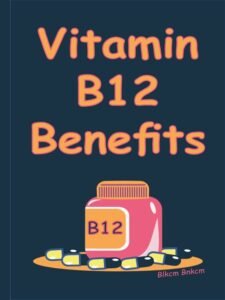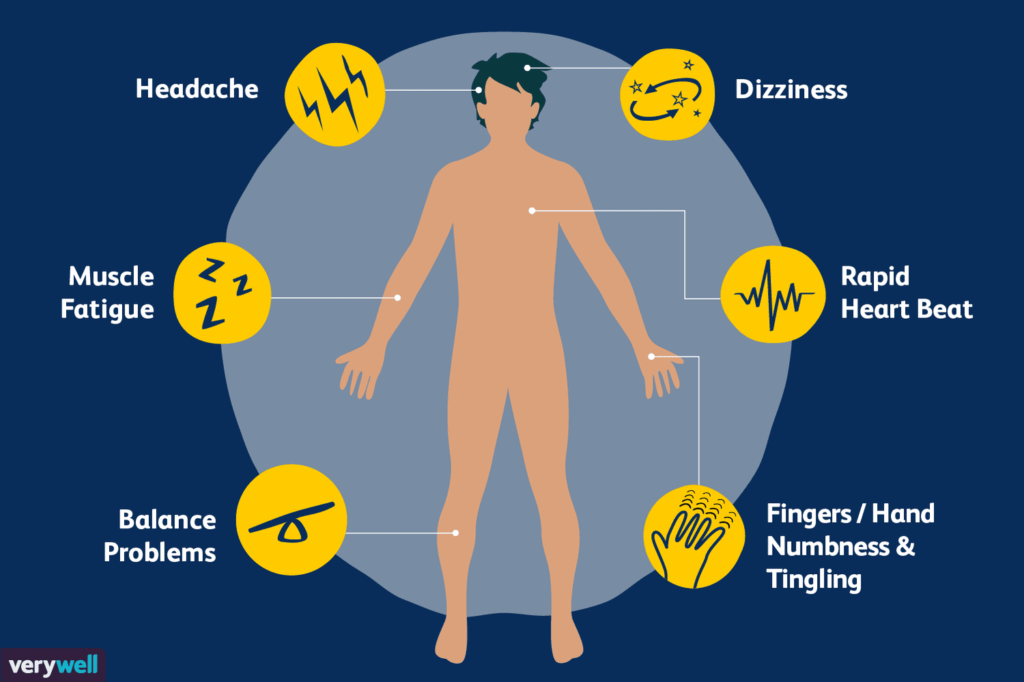Introduction: Wellhealthorganic Vitamin B12
Vitamin B12, also known as cobalamin, is a crucial nutrient for maintaining optimal health and well-being. This essential vitamin plays a significant role in various bodily functions, including nerve function, red blood cell production, and DNA synthesis. With growing awareness of its benefits and potential deficiencies, it’s important to explore the various aspects of vitamin B12, its sources, and how to ensure adequate intake. This article provides an in-depth look at vitamin B12, incorporating insights from Wellhealthorganic to offer a thorough understanding of its importance.
What is Vitamin B12?
Vitamin B12 is a water-soluble vitamin that is vital for several physiological processes. It is part of the B-complex group of vitamins, which are known for their role in energy production, metabolism, and overall health.
Key Functions:
- Nerve Health: Vitamin B12 is essential for maintaining the health of nerve cells and supporting the nervous system.
- Red Blood Cell Formation: It aids in the production of red blood cells, which are crucial for transporting oxygen throughout the body.
- DNA Synthesis: Vitamin B12 is involved in DNA synthesis and repair, making it vital for cell division and growth.
Sources of Vitamin B12
Obtaining sufficient vitamin B12 through diet is essential for maintaining health. Vitamin B12 is found naturally in animal-based foods and is often added to fortified products.
Natural Sources:
- Meat and Poultry: Beef, chicken, and lamb are rich sources of vitamin B12.
- Fish and Seafood: Salmon, tuna, and shellfish are excellent sources.
- Dairy Products: Milk, cheese, and yogurt contain significant amounts of vitamin B12.
- Eggs: Eggs are another good source, particularly the yolk.
Fortified Sources:
- Fortified Cereals: Many cereals are fortified with vitamin B12, providing an additional source.
- Nutritional Yeast: Often used as a seasoning, nutritional yeast is a plant-based source of vitamin B12.
- Fortified Plant Milks: Some plant-based milks, such as almond or soy milk, are fortified with vitamin B12.
The Importance of Vitamin B12
Vitamin B12 is integral to several physiological functions and overall health. Its deficiency can lead to a range of health issues, highlighting the importance of maintaining adequate levels.
Health Benefits:
- Energy Levels: Vitamin B12 helps convert food into energy, reducing fatigue and boosting overall vitality.
- Cognitive Function: It supports brain health and cognitive function, helping to prevent memory loss and mental decline.
- Mood Regulation: Adequate vitamin B12 levels are linked to a lower risk of depression and improved mood.
Deficiency Consequences:
- Anemia: Vitamin B12 deficiency can lead to megaloblastic anemia, characterized by the production of large, ineffective red blood cells.
- Neurological Issues: Symptoms such as numbness, tingling, and balance problems can occur due to nerve damage.
- Cognitive Impairment: Prolonged deficiency may contribute to cognitive decline and memory issues.
Identifying Vitamin B12 Deficiency
Deficiency in vitamin B12 can manifest through various symptoms, making it crucial to identify and address it promptly. Regular testing and awareness of symptoms can help in early detection and management.
Common Symptoms:
- Fatigue and Weakness: A lack of vitamin B12 can lead to low energy levels and general weakness.
- Pale Skin and Shortness of Breath: Anemia resulting from deficiency may cause pale skin and breathing difficulties.
- Numbness and Tingling: Neurological symptoms such as numbness and tingling in the extremities are common.
Diagnosis:
- Blood Tests: A vitamin B12 blood test is the primary method for diagnosing deficiency. Low levels indicate a need for supplementation or dietary changes.
- Methylmalonic Acid Test: This test helps assess vitamin B12 status and differentiate between B12 deficiency and other conditions.
Managing Vitamin B12 Levels
Maintaining adequate vitamin B12 levels can be achieved through dietary choices, supplementation, and lifestyle adjustments. For individuals at risk of deficiency, it’s essential to take proactive steps to ensure sufficient intake.
Dietary Recommendations:
- Incorporate Sources: Include a variety of vitamin B12-rich foods in your diet to meet daily requirements.
- Fortified Foods: For those on plant-based diets, choose fortified foods to ensure adequate intake.
Supplementation:
- Oral Supplements: Vitamin B12 supplements are available in various forms, including tablets, capsules, and lozenges.
- Sublingual Supplements: These dissolve under the tongue and may be more effective for some individuals.
- Injections: For severe deficiencies or absorption issues, vitamin B12 injections may be recommended by healthcare providers.
Lifestyle Tips:
- Regular Monitoring: Individuals with risk factors should have their vitamin B12 levels monitored regularly.
- Consultation: Seek advice from a healthcare professional to determine the appropriate dosage and form of supplementation.
Vitamin B12 and Wellhealthorganic
Wellhealthorganic provides valuable insights and resources on vitamin B12, emphasizing its importance for overall health and wellness. Their platform offers information on the benefits of vitamin B12, recommended sources, and tips for maintaining optimal levels.
Wellhealthorganic Insights:
- Educational Content: Wellhealthorganic provides comprehensive guides on vitamin B12, including its role in health and tips for incorporating it into your diet.
- Product Recommendations: They offer recommendations for high-quality vitamin B12 supplements and fortified products.
- Health Tips: Wellhealthorganic emphasizes the importance of balanced nutrition and regular monitoring to prevent deficiencies.
Importance of Vitamin B12
Vitamin B12 is crucial for several bodily functions, including:
1. Energy Production: It helps convert food into energy, reducing fatigue.
2. Nerve Health: Supports the maintenance of the nervous system, preventing nerve damage.
3. Red Blood Cell Formation: Essential for the production of healthy red blood cells, preventing anemia.
Benefits of WellHealthOrganic Vitamin B12
 WellHealthOrganic Vitamin B12 supplements offer several benefits:
WellHealthOrganic Vitamin B12 supplements offer several benefits:
– Improved Energy Levels: Regular intake can combat tiredness and boost energy.
– Enhanced Brain Function: It may improve memory and reduce the risk of cognitive decline.
– Better Mood Regulation: B12 supports serotonin production, which can enhance mood and reduce symptoms of depression.
Who Needs Vitamin B12?
Certain groups are more at risk of B12 deficiency:
– Vegans and Vegetarians: B12 is mainly found in animal products, making supplements crucial for those on plant-based diets.
– Older Adults: Absorption decreases with age, increasing the risk of deficiency.
– Individuals with Digestive Disorders: Conditions like Crohn’s disease or celiac disease can hinder absorption.
Signs of Vitamin B12 Deficiency

Common symptoms of deficiency include:
– Fatigue and weakness
– Pale or jaundiced skin
– Nerve problems, like tingling or numbness
– Difficulty thinking and memory loss
| Category | Details |
|---|---|
| Product Name | Wellhealthorganic Vitamin B12 |
| Form | Tablets, Capsules, Sublingual Drops |
| Active Ingredient | Methylcobalamin |
| Dosage | 1000 mcg per tablet/capsule/drop |
| Recommended Use | 1 tablet/capsule/drop daily or as directed by a healthcare provider |
| Bioavailability | High, due to the use of Methylcobalamin |
| Suitable For | Vegetarians, Vegans, Older Adults, Athletes |
| Free From | Gluten, Soy, Dairy, Artificial Colors, and Preservatives |
| Certifications | GMP Certified, Third-Party Tested |
| Packaging | Recyclable, BPA-Free Containers |
| Storage Instructions | Store in a cool, dry place, away from direct sunlight |
| Shelf Life | 2 years from the date of manufacture |
| Health Benefits | Energy Boost, Improved Mental Clarity, Red Blood Cell Formation, Neurological Health |
| Potential Side Effects | Rare; may include dizziness, headache, nausea |
| Price Range | $15 – $30 per bottle (60 tablets/capsules/drops) |
| Availability | Online and in select health stores |
| Customer Rating | 4.8/5 based on customer reviews |
| Company Mission | Promote holistic health through high-quality, natural supplements |
| Customer Support | 24/7 support via email and phone |
What is Vitamin B12?

Vitamin B12, also known as cobalamin, is a water-soluble vitamin that plays a pivotal role in the functioning of the brain and nervous system. It’s also essential for the formation of red blood cells and DNA synthesis. Chemically, it contains the mineral cobalt and can be found in several forms, including cyanocobalamin and methylcobalamin.
Benefits of Vitamin B12

Energy Production
One of the primary benefits of Vitamin B12 is its role in energy production. It helps convert carbohydrates into glucose, which your body uses for energy. If you’re feeling fatigued, low B12 levels might be the culprit.
Red Blood Cell Formation
Vitamin B12 is essential for the production of red blood cells. Without adequate B12, red blood cells can become abnormally large and fail to divide properly, leading to anemia.
Neurological Health
Vitamin B12 plays a significant role in maintaining neurological health. It helps in the production of myelin, a protective sheath that covers your nerves. A deficiency can lead to neurological issues, including memory loss and mood changes.
DNA Synthesis
Every cell in your body needs DNA to function properly. Vitamin B12 is crucial for DNA synthesis, ensuring that cells divide correctly and function optimally.
Conclusion
Vitamin B12 is a vital nutrient with significant roles in energy production, nerve function, and overall health. Ensuring adequate intake through a balanced diet, fortified foods, and, if necessary, supplementation is essential for maintaining optimal health and preventing deficiencies.
Wellhealthorganic plays a crucial role in educating individuals about the benefits of vitamin B12 and providing resources to support healthy living. By staying informed and taking proactive steps, individuals can manage their vitamin B12 levels effectively and enhance their overall well-being.